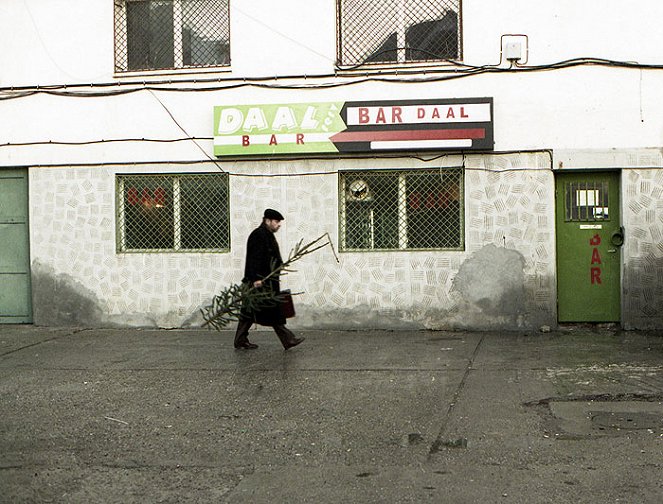Réalisation:
Corneliu PorumboiuScénario:
Corneliu PorumboiuPhotographie:
Marius PanduruActeurs·trices:
Mircea Andreescu, Teodor Corban, Ion Sapdaru, Coca Bloos, Luminița Gheorghiu, Lucian IftimeVOD (1)
Résumés(1)
Une petite ville de province roumaine s'apprête à fêter Noël seize ans après la Révolution. C'est la période que Virgile Jederescu, patron de la télévision locale, choisit pour confronter ses concitoyens à leur propre histoire. Aidé de ses deux amis, Piscoce, vieux retraité solitaire, et Manescu, professeur d'histoire criblé de dettes, il organise un débat télévisé qui a pour ambition de répondre à la question qui le préoccupe depuis longtemps : leur ville a-t-elle réellement participé à la révolution ? (K-Films Amérique)
(plus)Critiques (2)
I will not give this film five stars, despite my great regret, because the form somewhat lags behind the content and the first half of the film drags a bit despite its reasonable length and needlessly dissects the unflattering mundane existence of the story's protagonists. However, the second half, which takes place on television during a live talk show, is great and, in my opinion, the most accurate portrayal of the reality of a generation that experienced the fall of the communist regime and the subsequent disillusionment with the post-revolutionary situation. It experienced it quite rightly, because the actions of the elites are merely a result of the overall state of society, and changes in thinking are much harder than formal changes of the regime. The elites are no better or worse than the rest of society and they only do what those below them allow them to do. The television debate addresses whether a revolution took place in a provincial town east of Bucharest or if the locals just passively waited for the fall of power in the capital. As is known, human memory operates selectively and people tend to adjust their biography to the point where they eventually believe it themselves. Confrontation with reality, or rather with the perception of their peers, can result in a geyser of tragicomic outbursts that reveal the opportunism and adaptability of our heroes. The humor style, which revels in the awkwardness and pettiness of the film's characters, is quite different than that seen elsewhere in countries that experienced something similar. Overall impression: 85%.
()
Searching for the essence of the past in the present as a farce about three suffering heads. Was or was there not a revolution at 12:08 east of Bucharest? Do the lamps light up suddenly or gradually? The first comedic half wrapped in the Porumboiu lethargy of a television debate, in which three actors revolve in a circle of helplessness, insults and their own narratives. It would be fun if it wasn't so accurate in terms of post-soc societies. (It should be mandatory to screen this film once a day in the Institute for the Study of Totalitarian Regimes instead of the morning anthem)
()
Photos (4)
Photo © Artroumain


Annonces